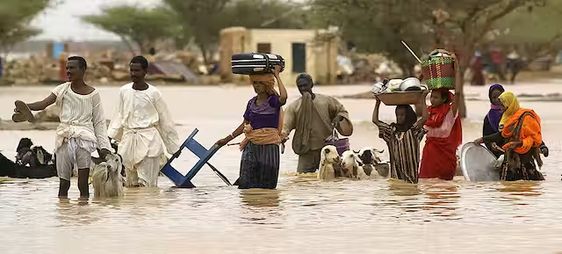Friday, April 4, 2025
African Union Attempts To Solve The South Sudan Crisis
Friday, September 20, 2024
South Sudanese Elections Are Postponed
Tuesday, October 10, 2023
South Sudan Declares Independence (2011)
Tuesday, September 6, 2022
Flooding On The Rise In Sudan
Seasonal floods have occurred in Sudan. This has been common with the rising waters that come from Nile River. The concern is the growing intensity of the floods. Rain fall and water levels are being altered by climate change. The increase in sea levels means flooding in costal areas. Sudan is not the only African country to struggle with floods. Uganda has seen some damage from rising waters. If too much rainfall happens this can cause landslides. When flooding stops, there are also devastating consequences. Homelessness and damage to infrastructure are major challenges. The death from flooding becomes more disturbing as governments show they have limited ability to save lives. Practical solutions do exist. Ditches, canals, and culverts must be expanded in Sudan. Infrastructure and other buildings should be as far away from at risk areas. An emergency evacuation plan should be established to ensure public safety. A climate change management policy must be developed b the African Union to ensure the preservation of East Africa. The intensification of floods also comes at a time when drought is happening in certain areas of the region.


